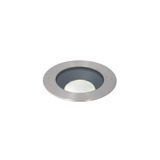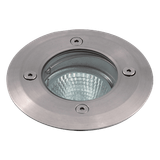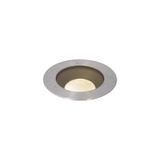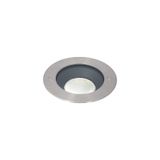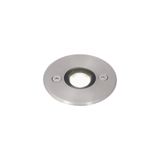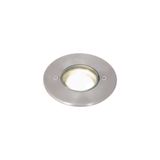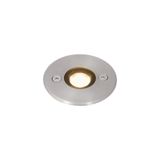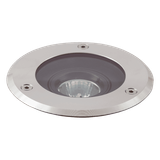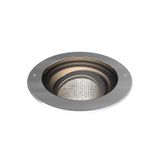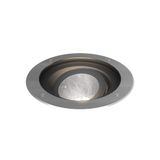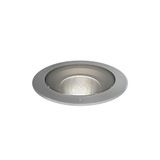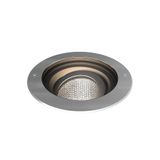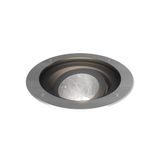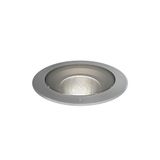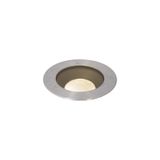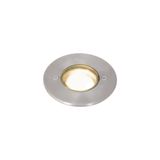Ansell Lighting In-ground luminaires
Turlock Inground Uplight 175mm Cool White
GU10/MR16 Inground Uplight Stainless Steel
Turlock Inground Uplight 175mm Warm White
Turlock Inground Uplight 230mm Cool White
Turlock Inground Uplight 70mm Cool White
Turlock Inground Uplight 95mm Cool White
Turlock Inground Uplight 70mm Warm White
GU10 Adjustable Inground Uplight Stainless Steel
Fresno Adjustable Inground
Fresno Adjustable Inground 270mm Cool White
Fresno Adjustable Inground 220mm Warm White
Fresno Adjustable Inground 185mm Cool White
Fresno Adjustable Inground 270mm Warm White
Fresno Adjustable Inground 220mm Cool White
Turlock Inground Uplight 230mm Warm White
Turlock Inground Uplight 95mm Warm White
Ansell in-ground luminaires, also known as ansell in ground lights, buried lights, ansell recessed ground lights or ansell landscape ground lights, are specialized outdoor fixtures designed to be installed flush with ground surfaces. They illuminate architecture, pathways, façades, trees, and external spaces while withstanding foot traffic, weather, and mechanical stress. As part of outdoor lighting systems, these ansell lighting in ground luminaires must balance optical performance, ingress protection, structural durability, and ease of service.
Typical engineering parameters include tight tolerances on housings (die-cast aluminium, stainless steels), tempered toughened glass, IP ratings (IP67 or higher), high mechanical load ratings (often up to 1000 kg or more), and long-life LEDs with compatible drivers. Procurement specialists must choose the right variant among ansell ground fixture luminaires by comparing load classes, optical parameters (beam angle, colour temperature, lumen output), mounting housings, and maintenance access.
Core Range – Fixed Recessed Ansell Lighting Ground Lights
The base models of ansell inground luminaires are fixed, non-adjustable uplights designed for flush installation. These standard ground lights are rated for heavy static loads, often tested to 1000 kg or more. They typically feature a sealed glass lens and robust housing to prevent water ingress, making them suited for pedestrian zones, plazas, or landscaped areas.
These fixed units usually come in various diameters (e.g. 70 mm, 95 mm, 175 mm) and wattages (few watts to tens of watts in LED form). Their advantages: minimal moving parts, greater reliability, lower maintenance. Limitations: fixed beam direction, less flexibility when architecture changes. For bulk procurement, planners select by diameter, height, LED module specification, and housing depth.
Adjustable and Tilted Variants – Directional Ground Lights
A more advanced ansell in ground lights variant offers ansell inset / adjustable ground uplights with tilting optics. These allow the beam to be angled (e.g. ±15° or more), ideal when you need to illuminate façades, walls, columns, or vertical structures from the ground plane. For example, the “GU10 Adjustable Inground Uplight” permits small tilt while retaining high ingress protection and structural strength. Its design includes die-cast housing, toughened glass, and load rating for pedestrian zones.
These variants give designers flexibility — aligning beam direction after installation. They are especially useful where future changes in landscaping, shading, or tree growth may require optical adjustment without replacing the entire fixture.
Enhanced / Heavy-Duty Ground Fixtures for High Load Zones
In more demanding installations — e.g. driveways, parking areas, road intersections — you need ansell buried lights engineered for higher mechanical loads and impact resistance. These ansell ground fixture luminaires often carry higher static load ratings (2000 kg or more), reinforced lenses, and thicker housings. Their LED modules may include more advanced optics for narrow-beam distribution (e.g. 10°, 18°) to minimize light spill onto adjacent areas.
These fixtures may also support additional features such as integrated surge protection, remote monitoring of driver temperature, or optional backlighting for creative effects. In procurement, engineers compare load class, IK rating, thermal performance, and replacement modularity before mass ordering.
Compatibility and Integration Notes
Ansell in-ground luminaires are designed to interface with standard installation housings (cast-in boxes or retrofit sleeves). The ansell in ground lighting systems often include mounting sleeves or housings that allow simple fixture replacement without disturbing surroundings. The alignment guides and locking mechanisms aid in consistent orientation across installations.
Electrical integration must account for driver location (inside or remote), wiring capacity, and dimming or control protocols (e.g. DALI, 1–10 V) if supported. Because many ground lights are in exposed locations, cable entries must maintain IP sealing. Beam alignment and height above finished grade must be consistent to maintain visual uniformity along walkways or architectural facades.
Technical and Safety Standards
Ansell ground luminaires comply with international standards such as IEC/EN 60598-2-13 (luminaires for road and street lighting) and relevant outdoor lighting norms. Typical protection is IP67 or better, and mechanical strength often conforms to IK10. The housings are often made of die-cast aluminium with corrosion-resistant finish (e.g. powder coating, anodizing), and lenses are toughened or tempered glass of sufficient thickness (e.g. ≥ 8 mm).
LED modules are often rated for L70 > 50,000 hours, operating temperature from –20 °C to +40 °C or wider range. Thermal management is critical — heatsinks are designed to maintain LED junction temperature within safe limits. All items are batch-traceable and undergo electrical, thermal, and mechanical testing before shipment.
Application and Use Scenarios
ansell ground fixture luminaires serve in many outdoor lighting contexts:
- Uplighting façades, columns, sculptures, and architectural elements.
- Pathway, plaza, and plaza-border accent lighting.
- Tree or landscape uplights with low glare design.
- Lighting within pedestrian zones, parks, hotels, and urban plazas.
- Driveway and vehicle-pathway zones (higher load variants).
When spec’ing for a project, lighting designers and procurement teams evaluate beam shape, spacing, load capacity, eye-level glare, and replacement protocols to ensure uniform lighting and long-term maintainability.
How to Select the Right Ansell Ground Lighting
- Determine mechanical load class — pedestrian, light vehicle, or vehicle zones.
- Choose beam angle and optical control — narrow, medium or wide beams based on distance and element size.
- Select colour temperature and CRI — 3000 K, 4000 K or special white; CRI ≥ 80 typical.
- Decide fixed or adjustable head — fixed is robust, adjustable gives post-install flexibility.
- Check ingress and impact protection — IP67 or higher, IK10
- Plan replacement and maintenance — use housings or sleeves to allow removal without rework.
- Procurement alignment — standardize model codes, diameters, and accessories for bulk order matching.
Frequent error: undersizing mechanical load rating or neglecting thermal dissipation, which leads to shortened LED life.
Wholesale Supply of Ansell In-Ground Luminaires by Bank of Lamps
We supply the complete portfolio of ansell inground luminaires, ansell recessed ground lights, ansell outdoor in ground lighting, ansell landscape ground lights, and ansell ground fixture luminaires. Our B2B customers benefit from individualized pricing based on project scale, and each order is supported by a dedicated account manager offering technical coordination. You’ll see real-time stock visibility across our Latvia warehouse and partner depots, enabling you to spec with confidence. We respond to quote requests typically within an hour, and ordering is done via EAN / MPN codes to simplify bulk upload into your procurement systems. Downloadable price lists retain validity windows, and you have access to lead-time tracking from order to dispatch. All your purchase history is stored so reorders are fast and error-free. Trusted clients may use post-payment up to 30 days, and we offer consolidated shipping when combining these luminaires with other products. We deliver throughout the UK, Germany, Netherlands, France, Spain, Belgium, and the Baltics, ensuring each shipment includes full compliance documentation, traceability data, and installation specification support.
